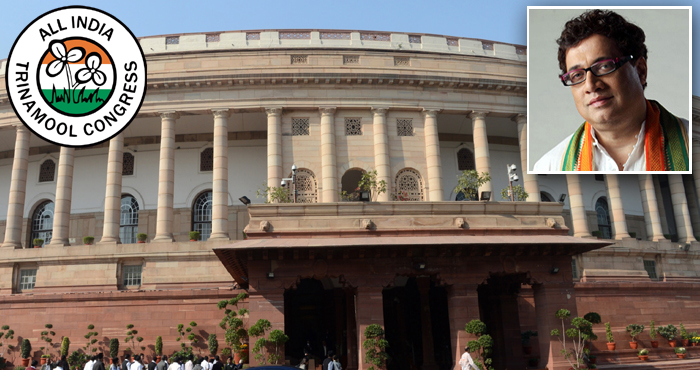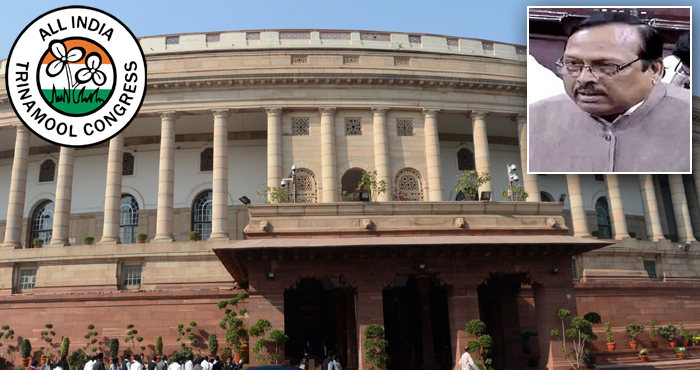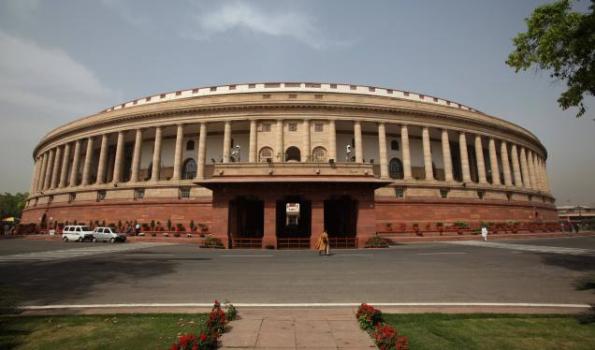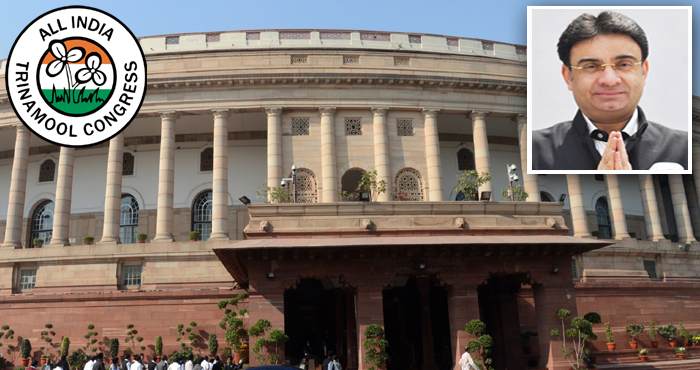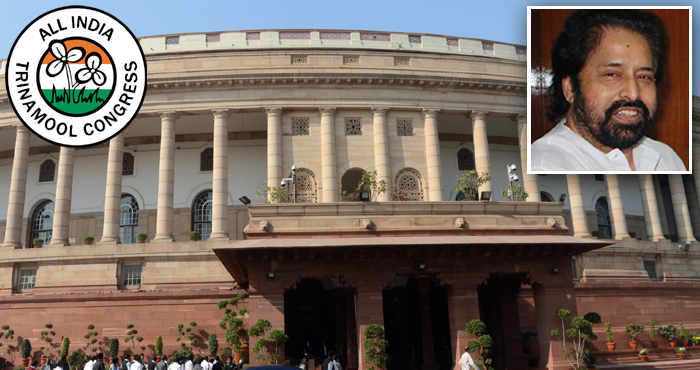Sir, I rise to speak on The Enforcement of Security Interest and Recovery of Debt Laws & Miscellaneous Provisions (Amendment) Bill, 2016. It was introduced by the Finance Minister on 11 May, 2016 and it was immediately referred to a Select Committee. The Select Committee has submitted its report in July, 2016. Fortunately the Select Committee had no dissent notes. So we can say that Select Committee was unanimous in its recommendations and hence we should not oppose the Bill too much.
Having said that let me point out some other matters to the Finance Minister who must be a little tensed because tomorrow the GST Bill is to be introduced in Rajya Sabha. He must have been holding last moment parlays. Our party has supported the GST Bill from the beginning, only I hope that in the last moment small contradictions that are there will be ironed out.
Now before I speak on the Bill let me point out that we are talking about banks and the regulator of the banks is Reserve Bank of the India. I must put on record that the controversy made by a BJP MP on the RBI Governor was absolutely unwarranted. It has lowered our prestige in the international market and ultimately the RBI Governor decided to leave. He will leave in September. It should not happen.
The other day we were discussing prices. Now Reserve Bank was caught in a peculiar situation. It cannot lower interest rates till food inflation comes down. And unless RBI lowers interest rate there can be no big investments coming. So, the problem of prices, which is linked to the Finance Ministry is also related to problem of industrial development.
Now the Finance Minister being a lawyer believes in bringing laws. Nothing wrong in that; the Lok Sabha is here for passing laws. But merely passage of laws does not change a situation where administrative and management actions are called for. Just by having a law, does not help anybody. Political will is also necessary and that seems to be missing.
He has already passed in this Session the ‘Bankruptcy and Insolvency Code’ which takes care of insolvency problem. He has two targets. One is to target black money with laws. The other is to target the NPAs of banks through laws. But so far we have not seen, in spite of passage of laws, much progress on these two fronts.
Sir, before coming to the Bill let me paint a picture of the banking industry. The banking industry is at the worst situation that you can consider. The total stress assets amount to Rs 8 lakh crore, that is 5.6% of the GDP. The RBI Governor had reviewed a meeting in February, advised deep surgery. Since then PSU banks have started making hectic right of these stress assets. What this is leading to? On December, 2015 value of stress assets was Rs 7.4 lakh crore which has now gone up to Rs 8 lakh crore.
RBI has said that 10.9%, one tenth of all loans, are stressed. In the quarter ended December 31, 2015 the State Bank of India, the biggest bank has posted 67% decline in consolidated profit to Rs 1259 crore for the third quarter due to higher provision in bad loans. The total provision in NPAs jumped to Rs 7644 crore that you are keeping separately.
Similarly, other smaller banks have bled even more. Banks are in a bad shape and are in dire need for capital infusion from the government. Banks say that RBI ordered an asset quality review. That’s why we have been forced to increase the provisions for stress assets. But this is not enough, Sir. That public sector banks have written off Rs 1.14 lakh crore of bad loans during 2012-15, that will never be recovered but that is the condition of the banks. Now can this be made up by laws alone – is my question.
In 2014-15 the State Bank of India wrote off Rs 1313 crore, The Punjab National Bank wrote off Rs 6587 crore. All is not right in the State of Denmark. Things are very wrong with the banks. I hope the government realises that.
Sir, now we can come to the laws that are there for recovery the bad debts. Recovery of Debts due to Banks and Financial Institution Act, 1993 through the debt recovery tribunals set up for loans. But you must be know that 70,000 cases are pending in DRT and though the law stipulated that all DRT applications should be disposed off in six months, for years together due to adjournments and other reasons. Cases are pending; DRTs are not functioning rightly.
Sir the other law that was enacted was called Securitization and Deconstruction of Financial Asset and Enforcement of Security Interest Act, 2002. Now this gave rise to a new type of company called the Asset Reconstruction companies.
This law is known as SARFAESI Act. Now the recovery of debts is available to both secured and unsecured creditors. But they must be banks or notified financial institution.
Cases over Rs 10 lakh would be automatically transferred to the debt recovery tribunals. Now what changes have been brought about? In this whole Act there are two parts, actually four parts. The SARFAESI Act to be amended, The Act on D-Act is to be amended, The Indian Stamp Act to be amended and The Depository Act has to be amended.
Now what are the new changes and amendments that have been brought? One is expeditious disposal of all applications. Second is an important change, there can be electronic filing of applications. Three, the priority of the secured creditors is enforced through the DRT amendment. Four, debenture trustees will be treated as financial institutions and five, empowering central government to provide for uniform rules for conducting processes of DRTs. So these are the five changes that have been made in the DRT Act.
Now in SARFAESI, Section 13 went for serious change. First, to ensure security for the NPAs without intervention of tribunals. If an asset was declared as a non performing asset you can directly go for SARFAESI to the asset reconstruction company. Number 2, any appeal against the new amazement any appeal against action taken against SARFAESI will lie with the debt recovery tribunal. Now what will these asset reconstruction companies do?
Asset reconstruction companies take over the non performing assets of the banks at discounted rates and manage at the disposal of such assets. This is a funny thing. If there is a Rs 1000 crore loan from a company to a bank, then the ARC will purchase the asset for Rs 600 crore. Then it will take over the property of the company and then it will sell them off and try to recover the Rs 600 crore and make a profit in this matter. The RBI is the regulator according to the amendment.
Next, what happened earlier is that the lender used to take loan from different banks showing the same property that is why a central registry has been created. And now to prevent multiple loaning from different banks for the same immovable property, central electronic registry has been set up, it is operational since 2011.
Now in the new amendment there will be new registration of creation, modification, satisfaction of Security Act by all secured creditors. And there is provision of integration of the security system. That is if a person had cars under the Motor Vehicles Act, immovable property, everything will be registered together so that bank at the push of a button will know what are the properties and which of them have been given to the bank as security. The idea is to create a central database of security interest in property right.
Secondly, it gives the Reserve Bank of India, which is been a little disempowered due to controversy over Raghuram Rajan, the power to regulate ARCs to carry out audit and inspection.
Three, to impose penalty on the ARCs. There will be exemption from stamp duty on loans assigned by banks and financial institutions to asset reconstruction companies.
Four, the amendment to enable non-institutional investors to invest in the security receipts by the asset reconstruction companies.
Five, those who issue debenture, even the government issues debentures, the debenture trustees will have the same rights as the secured creditors.
Six, there would be specific timelines for taking possession of secured assets.
Seven, the priority will be given to secured creditors in the repayment of debts.
Eight, amendment of the Indian Stamp Act, amendment of the Depositories Act, 1996, which will help banks and financial institutions to recover bank loans faster.
Sir, lastly I will say that we are members of the Finance Standing Committee and the committee went deep into the problem of nonperforming assets. We made certain recommendations – it was an All-Party Committee – some of which have been implemented or followed by the government and some have not been. For instance, our Committee pointed out that the total credit given by all the banks in December, 2014 was Rs 60.60 lakh crore. Now gross NPAs will touch Rs 4 lakhs in 2015-16. Our committee was not happy with the management of the problem both by the Reserve Bank and banks. Banks have failed to notice early signs of stress of loans disbursed by them our committee suggested that they should have intervened at the right time, earlier timely measures are necessary. Two important recommendations were, foreign sick audit should be made compulsory for specific class of borrowers so diversion of funds by promoters to unrelated businesses do not take place.
Developing a vibrant bond market is necessary because most of the defaulters are infrastructure companies and hence finance infrastructure companies; that is our suggestion, which has not been taken or done by the government. The biggest loans are in the infrastructure sector. Sir, you will be surprised that willful defaulters like Vijay Mallya owe the PSU banks a total of Rs 64,334 crores which is 21% of the total NPAs. So the suggestion was that every bank must focus on 30 stressed accounts so that Mallya-like incidents do not take place any more.
Sir, our committee also suggested that the RBI has not succeeded as a regulatory in the implementation and enforcement of its own guidelines. RBI must monitor and follow it up with banks. Lastly, we talked about corporate debt restructuring; CDI has failed as a method to achieve the desired objectives. Steps should be taken to take charge of failed CDR companies.
Sir, the committee also recommended more DRTs to be taken up. Sir, lastly I want to say that the recovery of NPAs through DRTs and SARFAESI have shown a decline from 2010-11 to 2013-14. So just because you have an Act doesn’t mean that NPAs will go down.
Lastly, in the Select Committee, many members suggested that agricultural loans if they are taken as collaterals, should be omitted from the scope of recovery; that suggestion was not listened to.
So we have supported the law but the banking system is in worse crisis. If one bank fails there will be cascading effect. And what the Finance Minister should be concerned about, more than GST, is the state of the banking system.
And Sir, lastly I want to mention that the RBI Governor came to our Standing Committee on Finance. He showed us a graph showing that the credit from the public sector banks is less than the credit from private sector banks. So, actually credit is not flowing into the market. Industrial development and recovery are in a stagnant process.
So, I say let the Minister have all the Act and the powers but just as Benami Transaction Act should not lead to tax terrorism, similarly the SARFAESI Act should not lead to bank official terrorism where they drag the small lenders to the courts.
Thank you very much.

